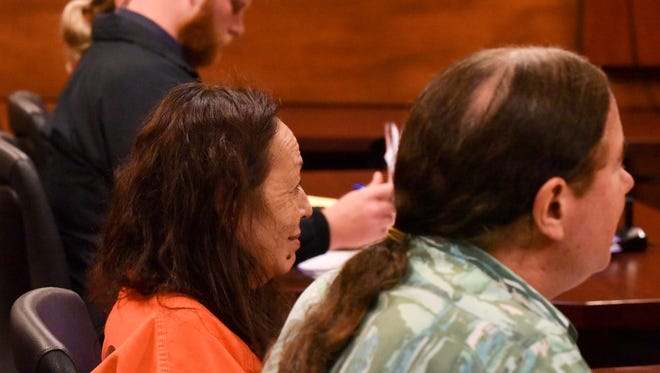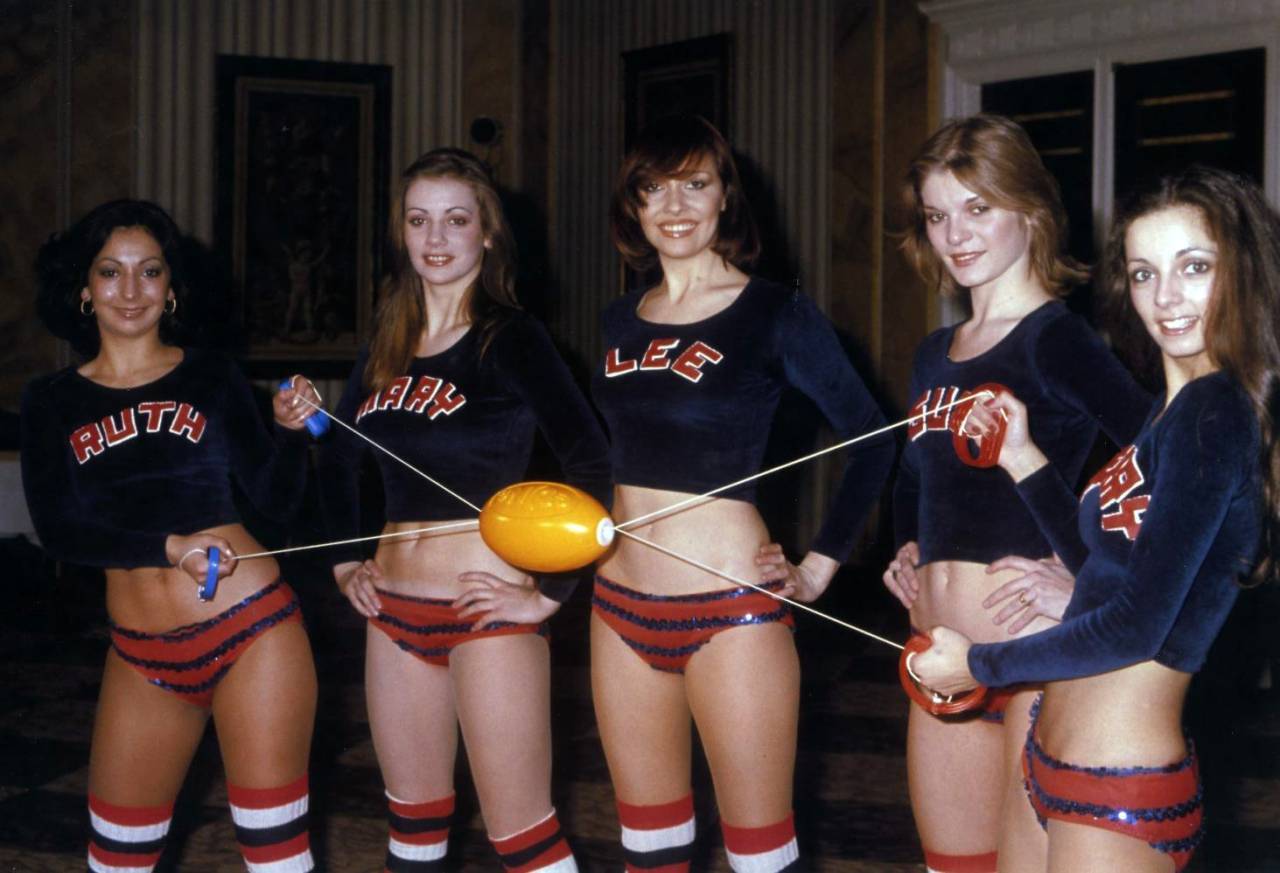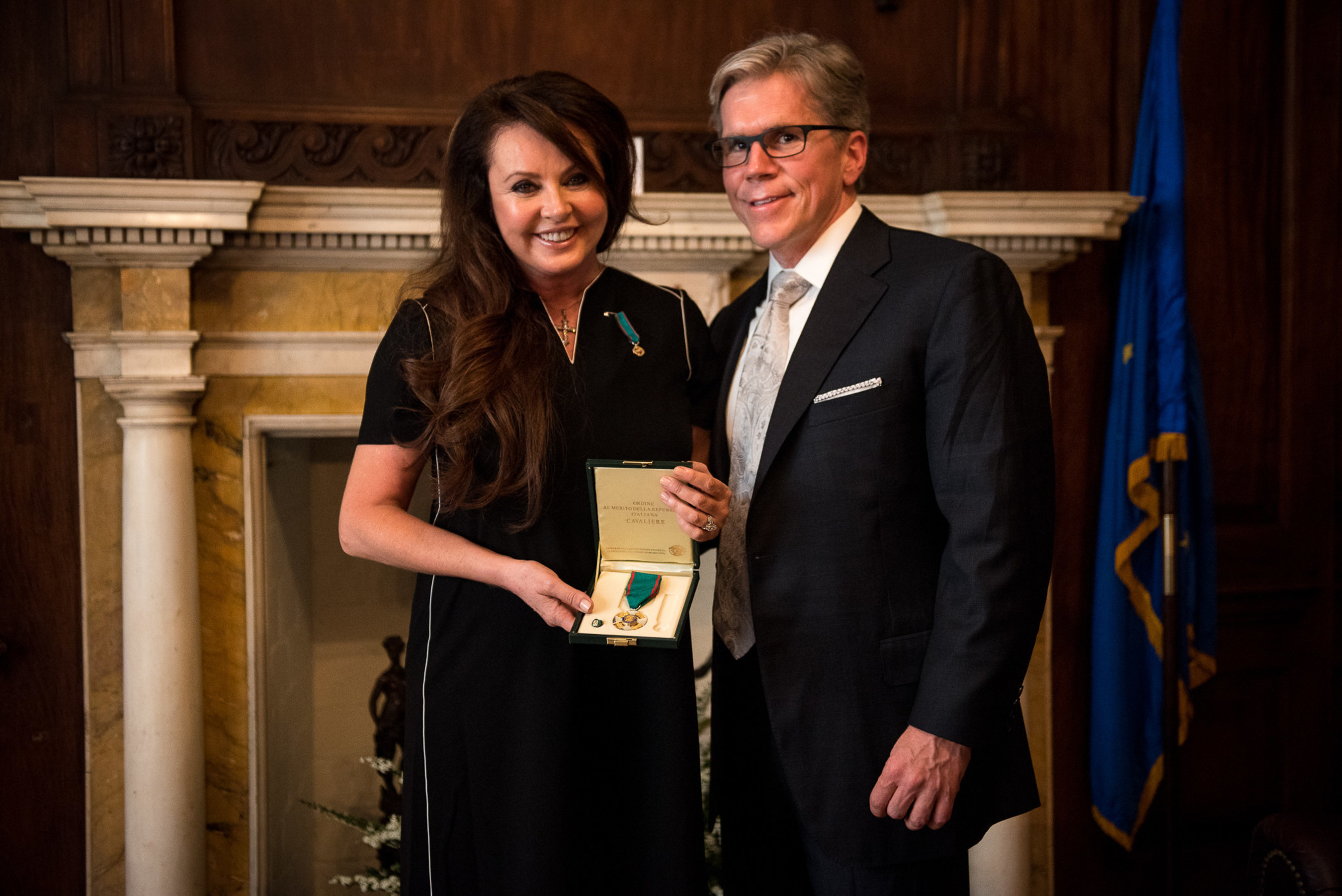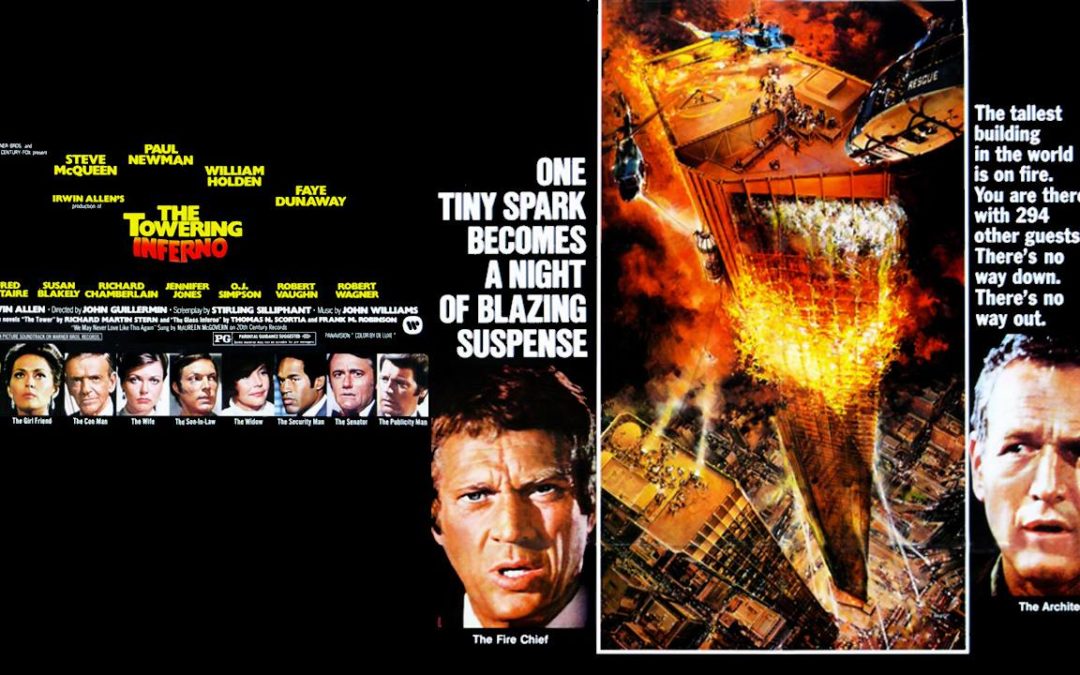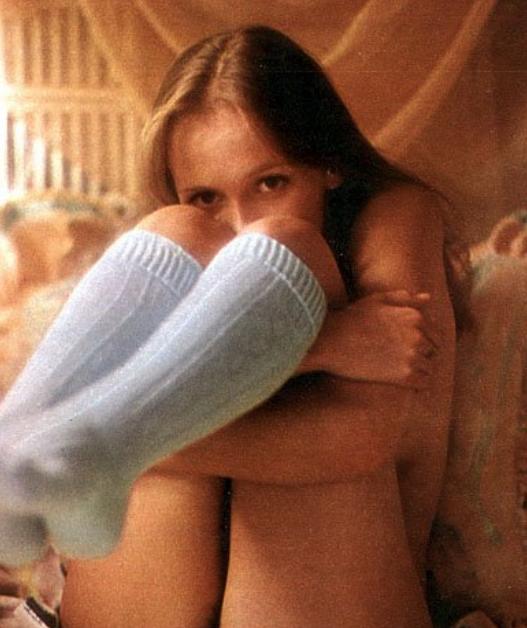"
Who's Holding Donna Now" is a 1985 hit single recorded by
DeBarge for the
Gordy label. It was their second consecutive Top 10 Pop hit in the U. S. after the release of "
Rhythm of the Night".
After recording the successful dance single, the group returned to their more comfortable standard of ballads. Relying on an outside producer, outside songwriters, and background vocalists,
Richard Page and
Steve George, this song was recorded and released as the second single from their fourth album,
Rhythm of the Night.
The song reached number six on the U.S.
Billboard Hot 100 on the chart dated August 10, 1985 and spent four weeks at number two on the R&B chart on July 26, 1985. It also became DeBarge's third song to top the
Billboard Adult Contemporary listing on July 19, 1985.
DeBarge - Who's holding Donna now
Eldra Patrick "El" DeBarge (born June 4, 1961) is an
American singer-songwriter, musician and producer. He was the focal point and primary lead singer of the
family group DeBarge. Popular songs led by El DeBarge include "
Time Will Reveal", "
Stay with Me", "
All This Love", and "
Rhythm of the Night". As a
solo artist, he is best known for his unique high
tenor register, strong falsetto and hits like "
Who's Johnny" and "Love Always". He's also
collaborated with artists such as
Dionne Warwick,
Al Green,
Lalah Hathaway,
Tone Loc,
Babyface,
Faith Evans,
Quincy Jones,
Fourplay, and
DJ Quik. DeBarge is a five time
Grammy Award nominee.
In 1981,
The DeBarges was released after the family had worked in the studio for a year recording it. The album was noted for most of its songs produced and written by all four family members including Bobby DeBarge, who helped end the album track "Queen of My Heart" after El had led the song for most of its tenure. The following album, 1982's
All This Love featured younger brother
James and saw much success with the compositions "
I Like It" and
the title track. El would remain the producer and arranger for all of the group's Motown albums. In 1983, DeBarge released
In a Special Way, which spawned the hits "
Time Will Reveal" and "
Love Me in a Special Way", and in 1984, the band became a sensation while touring for
Luther Vandross on the singer's
Busy Body tour. Though the group enjoyed much success and appeared to be a family unit, there were growing tensions between El and his brothers, mainly because of Motown's push to have El become the only noted star of the group, repeating a pattern that began with
Smokey Robinson and
The Miracles. By the end of the tour, El DeBarge was mainly called to handle the production of DeBarge's next album,
Rhythm of the Night, without much help from his siblings. The DeBarge family had one more album, although El and Bobby weren't on the album. Bobby had died years after the album was released and El was working as a solo artist.
Rhythm of the Night became the group's best-selling album ever, although some contended that El DeBarge was the only member present on the album with the exception of the
title track, which became a top five hit in several countries including the US and UK becoming the group's and El's
signature song. In late 1985, he appeared on
The Facts of Life in the Season 7 episode "Doo-Wah" as himself and performed his single "You Wear it Well" with
Lisa Whelchel,
Kim Fields,
Mindy Cohn, and
Nancy McKeon singing backup. In 1986, El DeBarge left the group and began his solo career with the release of his
self-titled debut album, which spawned the hits "
Who's Johnny" and "
Love Always". Three years passed, however, until DeBarge released his second album,
Gemini in 1989. The album had two hits,″Real Love″ and ″Somebody Loves You″. DeBarge's contract with Motown was terminated in 1990, and he signed with
Warner Bros.. In the meantime, DeBarge was featured on the
Quincy Jones single "
The Secret Garden", alongside
Al B. Sure!,
James Ingram, and
Barry White, released in 1990.
In 1992, DeBarge released his third album, the
Maurice White-produced
In The Storm, which featured the
Chanté Moore duet "
You Know What I Like", which was Moore's first professional recording. Critics noted the album for its
Marvin Gaye-styled productions. El DeBarge later admitted that Gaye was a huge influence on his musical style and once commented that he had initially written "All This Love" as a song he imagined Gaye doing; he even imitated Gaye's ad-libs during his
I Want You era near the end. That same year, El had chart success on the R&B charts with a collaboration with
Fourplay on their version of Gaye's "
After the Dance". DeBarge's next album, 1994's
Heart, Mind and Soul, co-produced with
Babyface, yielded modest charted singles such as "Slide" and "Where is My Love" (which featured Babyface on duet vocals).
While DeBarge continued to collaborate on other artists' projects, including those of his brother
Chico and rapper
DJ Quik (with whom El collaborated on Quik's hit "Hand in Hand"), he didn't release any more albums between 1994 and 2009. In 2010, he finally emerged from a 16-year delay with the appropriately titled
Second Chance, released after a series of comeback performances and appearances, including a well received performance at the 2010
BET Awards. The album yielded two singles, "Second Chance" and the
Faith Evans duet "Lay With You", and later resulted in three
Grammy Award nominations:
Best Male R&B Vocal Performance,
Best R&B Song and
Best R&B Album. El remains the only member of the DeBarges to have Grammy nominations both outside of the group and in the family.
DeBarge was raised in Detroit and
Grand Rapids, Michigan, as a child. His parents had a tumultuous marriage that involved
domestic abuse and
child abuse on the part of DeBarge's father Robert. DeBarge has remained silent on his relationship with his father and many other elements of his family life, later documented in books written by his mother Etterlene, sister Bunny, and brother Tommy. In 1978, DeBarge became a father to his first child, a daughter named Adris. He eventually went on to father 12 children altogether. DeBarge was close to his siblings, particularly his brothers
Bobby and
Chico. Bobby's death in 1995 had a profound effect on DeBarge; family members later said he has never fully recovered from it. Since Bobby's death, he has performed several of Bobby's songs with Switch onstage, sometimes with Chico singing along. DeBarge and several DeBarge brothers reunited in 1998 performing several DeBarge classics.
In 2001, DeBarge was arrested for
cocaine possession and was given
probation. In 2006, he was arrested again for possession of a
controlled substance and was once again given probation. In 2007, he was arrested in a
domestic dispute and was held without bail; the charges were later dropped. Later that year he was arrested yet again, charged with cocaine possession, and given probation. However, he was once again arrested in 2008 for possession of
crack and
drug paraphernalia, breaking the terms of his probation. For this
violation he was immediately sentenced to two years in state prison in California.
DeBarge has had a history of
drug abuse. He stated that his addiction started after he began receiving
prescription medication for toothache pain after having a tooth pulled by a dentist. Up until then, DeBarge had not used drugs, unlike his siblings who began to abuse drugs during the tenure of the group. By the mid-1990s, DeBarge had become addicted, and his addiction resulted in his career faltering after its peaks in the 1980s. Following a prison sentence for which he served 13 months, DeBarge announced that he had found
sobriety after an addiction that he said had lasted nearly 25 years, stating he had also acknowledged his problems with the law in the past. In February 2011, while promoting his 2010 album
Second Chance, DeBarge's label announced that the singer was canceling all public dates and appearances as he went back to rehab following a relapse. DeBarge later returned to work and made an appearance at the
54th Grammy Awards in February 2012.
Singer El DeBarge arrested in Encino on suspicion of drug possession
MARCH 21, 2012 | 10:35 AM
Grammy-winning singer El DeBarge, who has struggled with substance abuse, was arrested in Encino on suspicion of drug possession with intent to sell, department officials said Wednesday.
Undercover narcotics officers were conducting an investigation near White Oak Avenue and the 101 Freeway early Monday when they spotted the singer and another man acting suspiciously, said LAPD spokeswoman Norma Eisenman.
Officers recovered narcotics from an area where DeBarge had been standing, Eisenman said.
El DeBarge, best known for the Grammy-winning song "Rhythm of the Night" in the mid-1980s as part of his family's group DeBarge, was booked on suspicion of possession for sale of drugs.
The other man, Curtis Freeman, was arrested on suspicion of attempted drug possession.
DeBarge attorney Spencer Vodnoy said he was skeptical about the initial booking charge of possession for sale given his client's struggle with drug use.
"The DeBarge family is very close knit and have had their struggles with substance abuse," Vodnoy said. "They will do what they always have done, which is to support their sibling through this."
EL DEBARGEOff The Hook After Drug Arrest
3/22/2012
"Rhythm of the Night" singer
El DeBarge is in the clear after he was arrested for drug possession this week -- because the L.A. County D.A. has declined to file charges.
According to official D.A. documents, the case was rejected due to insufficient evidence.
TMZ broke the story ...
DeBarge was arrested on Tuesday for felony possession of narcotics with intent to sell -- the singer's third drug arrest since 2001.
According to the docs, police officers noticed DeBarge and another man speaking on the street -- and for some reason, decided to search them ... without giving a reason why.
After searching them and coming up with nothing -- cops claim they perused the surrounding area ... and found a baggie of rock cocaine hidden under a nearby car.
The other man insisted he was there to buy the rock from DeBarge -- but DeBarge denied the accusation ... and the D.A. decided there wasn't enough evidence to make the charge stick.
El Debarge Accused of Pulling a Shotgun on Alleged Ex-Girlfriend
Dec 18, 2017
A woman who says she was in a relationship with "Rhythm of the Night" singer
El DeBarge just got a restraining order against him after she claims he sped up to her on the freeway and waved a shotgun in the air.
Tammie Terrell Rose claims on the night of December 9, she was driving on the 405 freeway in Los Angeles when El DeBarge came up behind her driving another vehicle. Rose says "He came around me on the shoulder of the freeway and he pulled in front of me and he pulled a shotgun out and waved the shotgun in the air."
Rose also says his daughters have harassed her by calling her a "loser bitch," and allegedly yelling at her. The details seem a bit bizarre, but Rose believes DeBarge has his family and associates on a mission to sabotage her for reasons unknown.
The judge signed off on the temporary restraining order, and El DeBarge must stay 100 yards away from Rose until their hearing next month.
Debarge only publicly spoke out about the alleged shotgun incident once, on December 17, 2017, when he took to Twitter to deny her claims…and pray for her soul:
‘Rhythm of the Night’ singer arrested for felony vandalism
By
Francesca Bacardi
July 17, 2018
El DeBarge
“Rhythm of the Night” singer El DeBarge was arrested after he allegedly took a wrench to a person’s windshield.
The singer, whose real name is Eldra Patrick DeBarge, got into an argument Friday night in California and chased a man out of a house,
TMZ reported. The unidentified man then ran to hide in an RV, where 57-year-old DeBarge allegedly attacked the windshield with the tool.
The man called the police, who arrested DeBarge for felony vandalism. He spent the night in jail before posting $20,000 bail.
El DeBarge’s rep did not immediately return a request for comment.


















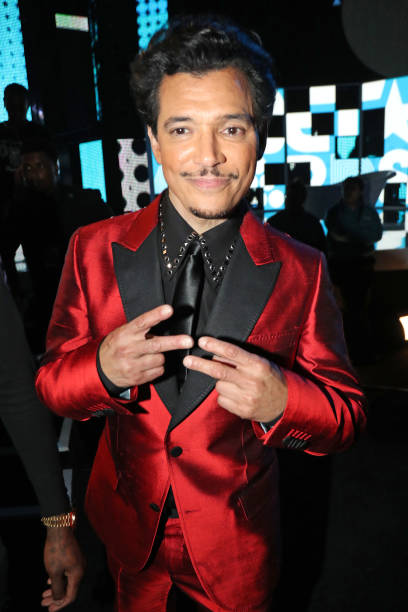



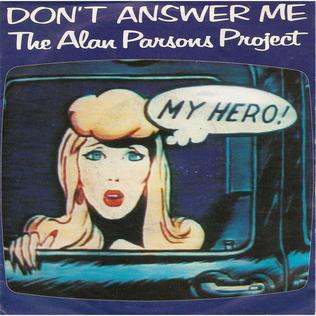
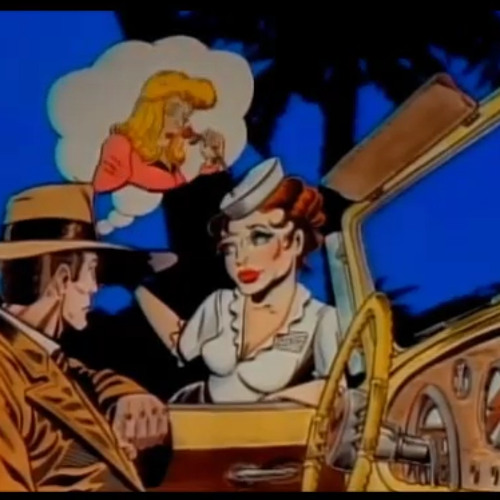

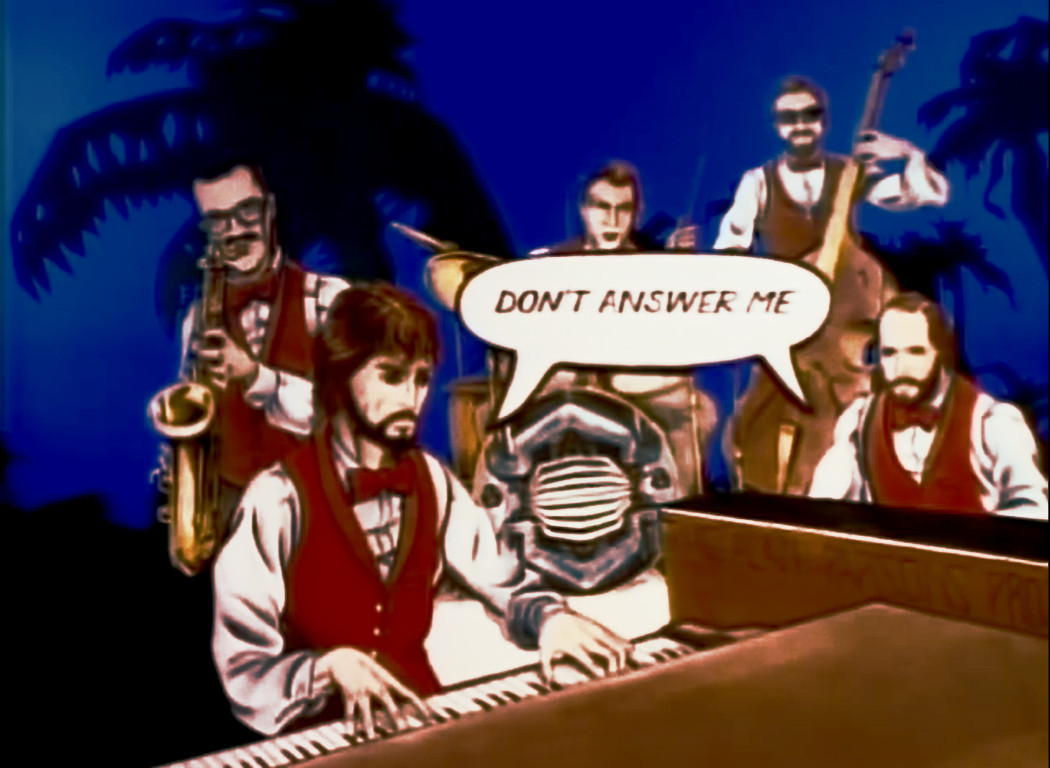
:format(jpeg):mode_rgb():quality(90)/discogs-images/R-2773561-1334924711.jpeg.jpg)

